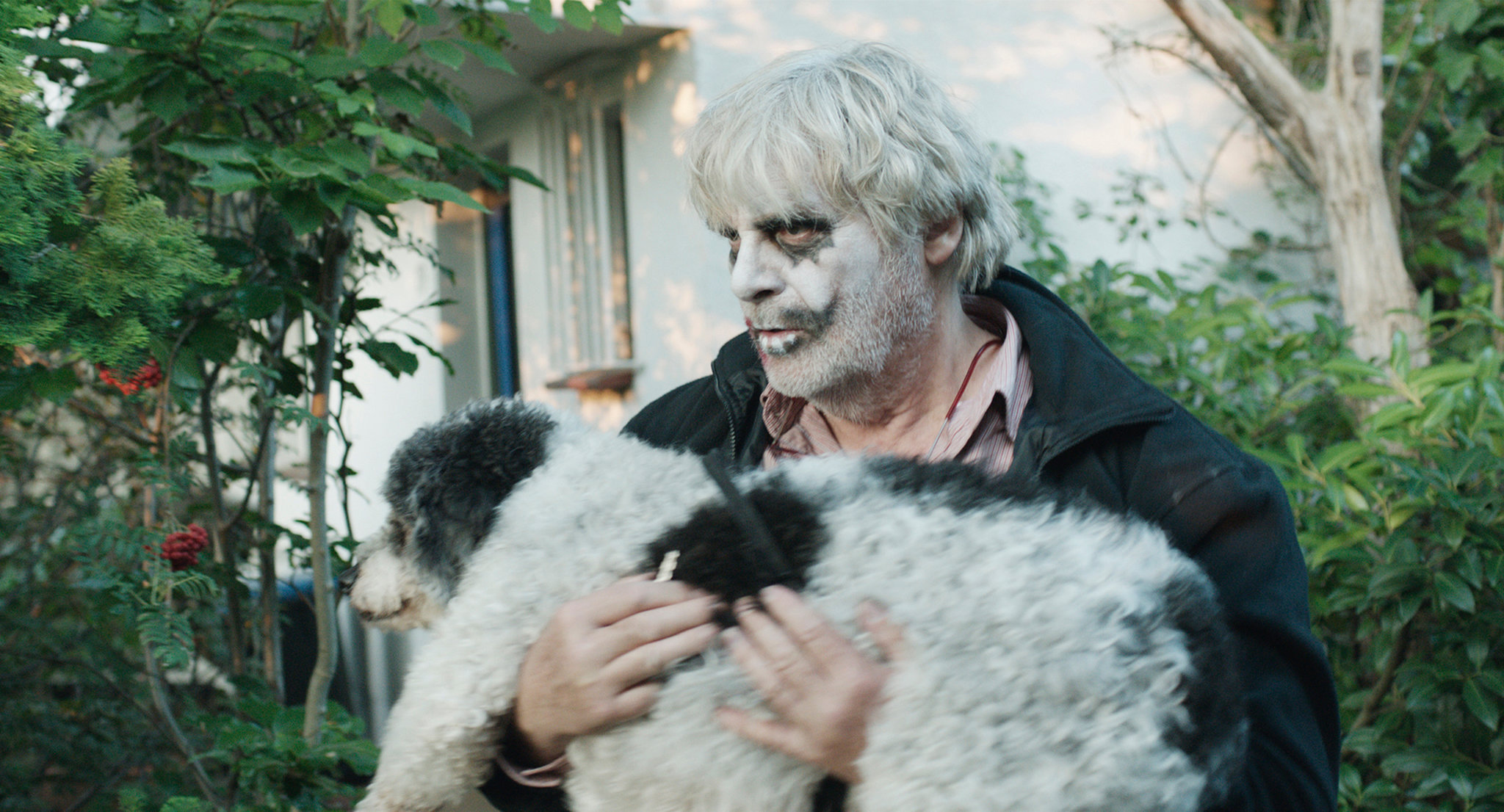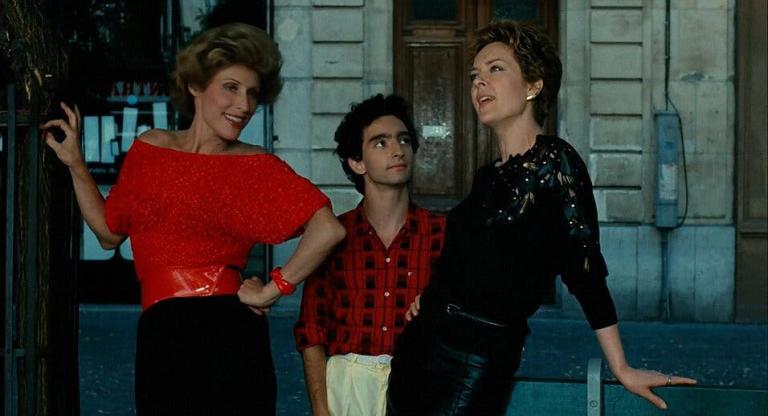“I believe the children are our future,” Ines sings at the beginning of the karaoke scene in Toni Erdmann. The lyrics of Whitney Houston’s “Greatest Love of All” are a delightfully bad fit for the climactic scene in Maren Ade’s 2016 feature, given Ines Conradi (Sandra Hüller) does not appear to have any particular investment in the future, spending her days as a consultant on an outsourcing project within the oil industry.
The party scene is a staple of Ade’s cinema for the way it generates a bizarre and wondrous union of public, professional, and domestic spheres. Toni Erdmann develops Ade’s earlier explorations of the relationship between the three in Everyone Else (2009) and The Forest for the Trees (2003). When Ines asks her coworkers to strip naked at her birthday party, their submission and willingness to do so suggest a desire to shed the strictures of workplace appearances. This desire, of course, is not all too far from her father Winfried (Peter Simonischek)’s disguise as the titular Toni Erdmann, a putative life coach, at the center of the film.
When Winfried disrupts Ines’s life in Bucharest by showing up at her office, her assistant tells him, “No concept makes sense if the client doesn’t want it.” What kind of concept, we might ask, makes sense to the viewer-client of Ade’s cinema? What kind of concept, too, is Winfried’s invention of Toni, which jolts Ines out of her daily life and forces her to submit to her father’s game? Ade’s comedy affords a departure from the sense-making of the client-consultant relationship. Toni Erdmann also makes comic fodder of the language and posture of cosmopolitanism, with its banal generality and expectation of adaptability. Ines speaks in a kind of nonsense verse of the corporate domain: “I was just trying to say that knowledge is international, so I totally agree with that, too, of course.”
If I were to pitch Ade’s concept to a client, I might call Toni Erdmann a father-daughter film whose syntax and method emerge through a project of unrelenting slapstick. If I were not very good at my job, I might call it a three-hour-long comedy of post-Soviet economy and work culture. But if I wanted to give Ade’s brilliance and precision its due, I would have to tell you how and why Toni Erdmann successfully stages the formation and development of a subject under late liberalism. Toni Erdmann is an indictment of the kind of global or cosmopolitan subject who fluidly moves between geographies and languages at the price of affective detachment. Winfried’s intervention in his daughter’s life is a similar demand of affective and political accountability.
At nearly three hours, Toni Erdmann is the 21st century’s lightest and longest comedy of economic totality. Duration is central to Ade’s study of work and labor; the film’s running time is a rigorous and ruthless announcement of comedy’s capacity. I’ve seen Toni Erdmann several times, and with each subsequent viewing I like to think: How many minutes have I watched Winfried put in and take out his false teeth? How many minutes did I wait for Ines to finally place them in her mouth, too, only for her to turn away in shame? I’m always all the better for all of it.
Toni Erdmann screens this evening and tomorrow, November 4 and 5, at the Museum of the Moving Image as part of the series “Reverse Shot at 20: Selections from a Century.”



